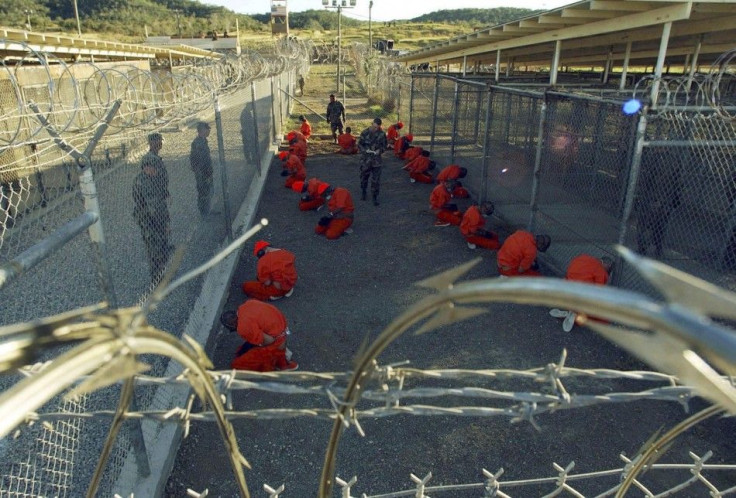NDAA Lawsuit Seeks Preliminary Injunction Against ‘Unprecedented Threat To Civil Liberties’

Noam Chomsky, Daniel Ellsberg and Icelandic parliament member Birgitta Jonsdottir are among the seven witnesses expected to testify in a New York federal court on Thursday in support of a class action lawsuit against the United States government over controversial provisions in the National Defense Authorization Act (NDAA), a military spending bill they claim threatens American's civil liberties and basic human rights.
U.S. District Judge Katherine Forrest will hear arguments for a preliminary injunction against certain sections of the legislation, which was signed into law on Dec. 31. Buried in the otherwise mundane budget and expenditure bill is a provision under Section 1021 of the law that permits the indefinite military detention, without a formal charge or public trial, of anyone suspected of participating in or aiding a terrorist organization engaged in hostilities against the United States.
Although the bill explicitly states the military detention provision does not apply to U.S. citizens, but only American al-Qaeda members overseas, some critics fear the language could eventually be interpreted to apply to all citizens, something Sen. Mark Udall, D-Colo., said would be an unprecedented threat to our constitutional liberties.
In December, Udall proposed an amendment to the bill that would have struck down the section authorizing the president to use all necessary and appropriate force to detain people suspected of terrorism. The effort was defeated in a 60 to 38 vote.
Author Chris Hedges, a former New York Times war correspondent, filed the lawsuit -- known as Hedges v. Obama -- against what he says are the law's Homeland Battlefield provisions , which he believes could allow for the indefinite detention of journalists who report the views of groups the U.S. government considers to be terrorists.
A Erosion Of Civil Liberties?
If there is no rolling back of the NDAA law, we cease to be a constitutional democracy. Totalitarian systems always begin by rewriting the law, Hedges said this week. They make legal what was once illegal... Foreign and domestic subjugation merges into the same brutal mechanism. Citizens are colonized. And it is always done in the name of national security.
Hedges was eventually joined by several prominent scholars and public figures, including Pentagon Papers source Ellsberg, Massachusetts Institute of Technology professor Chomsky, as well as Jonsdottir and Occupy London organizer Kai Wargalla.
The Pentagon Papers, which detailed the U.S. Department of Defense's history of political and military involvement in Vietnam, is one of the most notorious U.S. security leaks in the last century. Ellsberg, a former U.S marine and military anaylst, leaked the classified documents to the New York Times in 1971. The move is credited with substantially eroding the public support for the Vietnam War.
The feminist scholar Naomi Wolf and civil rights activist Dr. Cornel West are in the process of becoming plaintiff's in the lawsuit. Wolf is expected to read a statement in the court on Thursday.
On Monday federal prosecutors said the plaintiff's position derives from misunderstandings of the NDAA, Courthouse News Service reports. A memorandum filed by the U.S. government insists the NDAA statute in question is not specifically designed to address speech issues, and insist the law would not be used to violate the First Amendment rights of the press or activist groups such as WikiLeaks and Occupy Wall Street.
The NDAA is not a statute 'specifically addressed to speech' but (as relevant here) to the detention of individuals who are part of or substantially supported al-Qaeda, Taliban, or associated forces engaged in hostilities against the United States and its coalition partners, the memorandum states.
Civil libertarians have balked at the vagueness of the phrase associated forces. Prosecutors claim associated forces must be armed by definition, meaning it could not apply to non-violent activist groups. However, Carl Mayer, a lawyer representing the plaintiffs, told Courthouse News the U.S. military has already undermined the alleged armed group requirement with the court martial of WikiLeaks source Pfc. Bradley Manning, who leaked classified documents to the organization but did not offer armed support.
Those definitions are so broad and vague that they can encompass, journalists, lawyers, or even the judge, and they are undefined in the statute, Mayer said.
Occupy Wall Street plans to express solidarity and support for the lawsuit on Thursday afternoon. The group is scheduled to gather for a silent march in New York's Foley Square at 3 p.m. EDT.
--
© Copyright IBTimes 2024. All rights reserved.





















